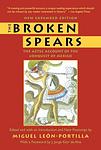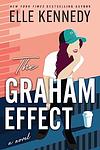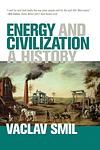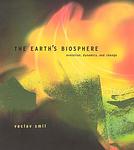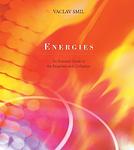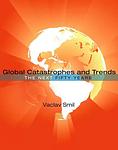The Greatest Czech, Dutch, Mexican "Nonfiction" Books of All Time
Click to learn how this list is calculated.
This list represents a comprehensive and trusted collection of the greatest books. Developed through a specialized algorithm, it brings together 305 'best of' book lists to form a definitive guide to the world's most acclaimed books. For those interested in how these books are chosen, additional details can be found on the rankings page.
Genres
Countries
Date Range
Reading Statistics
Click the button below to see how many of these books you've read!
Download
If you're interested in downloading this list as a CSV file for use in a spreadsheet application, you can easily do so by clicking the button below. Please note that to ensure a manageable file size and faster download, the CSV will include details for only the first 500 books.
Download-
1. The Diary of a Young Girl by Anne Frank
This book is a real-life account of a young Jewish girl hiding from the Nazis during World War II, written in diary format. The girl and her family are forced to live in a secret annex in Amsterdam for two years, during which she writes about her experiences, fears, dreams, and the onset of adolescence. The diary provides a poignant and deeply personal insight into the horrors of the Holocaust, making it a powerful testament to the human spirit.
The 60th Greatest Book of All Time -
2. The Praise of Folly by Erasmus
This satirical work is a critique of the practices of the Church and the wider social behavior of the time. Narrated by Folly, the female personification of foolishness, the book humorously criticizes various aspects of society such as superstitious religious practices, scholarly pedantry, and the excesses of the upper classes. The book is a bold critique of its time, using humor and irony to expose the follies of its society.
The 781st Greatest Book of All Time -
3. The Waning of the Middle Ages by Johan Huizinga
"The Waning of the Middle Ages" is a historical analysis of the cultural life of the late Middle Ages, particularly in France and the Low Countries, during the 14th and 15th centuries. It delves into the period's modes of thought, forms of expression, religious beliefs, and social norms. The book argues that the era was characterized by a highly stylized and overwrought civilization, marked by an excessive emphasis on chivalry and courtly love, a religious mindset dominated by the fear of death and the afterlife, and a cultural milieu that was both highly imaginative and deeply pessimistic.
The 915th Greatest Book of All Time -
4. Ethics by Baruch de Spinoza
"Ethics" is a philosophical work that explores complex ideas about God, the universe, human emotions, and the path to enlightenment. The book outlines a metaphysical, epistemological, and ethical system in which God and the universe are one and the same, rejecting traditional notions of a personal deity and asserting that understanding the natural world leads to peace of mind and happiness. The work delves into the nature of the human mind and its emotions, advocating for the pursuit of reason and knowledge to achieve a calm, enlightened state.
The 1014th Greatest Book of All Time -
5. The Labyrinth of Solitude by Octavio Paz
This book is a profound and vivid exploration of Mexico's character, culture, and identity. The author delves into Mexico's history, politics, and psyche, examining the country's deep solitude and its impact on the national character. The book provides a comprehensive analysis of Mexican society, its myths, symbols, and rituals, offering a deep understanding of the Mexican people's unique way of perceiving the world. It also discusses the influence of the United States on Mexico and the complex relationship between the two countries.
The 1128th Greatest Book of All Time -
6. Tractatus Theologico Politicus by Baruch de Spinoza
"Tractatus Theologico-Politicus" is a seminal work that explores the relationship between religion, politics, and philosophy. The author argues for the separation of theology and philosophy, asserting that the purpose of the state is to promote peace and security through rational governance, free from religious influence. He critiques the role of organized religion in politics and defends the freedom of thought and expression, advocating for a secular, democratic political order. The work also delves into biblical criticism, challenging traditional interpretations and suggesting that the Bible should be analyzed through a historical and contextual lens.
The 1542nd Greatest Book of All Time -
7. Women In The Resistance And In The Holocaust by Vera Laska
This book provides a poignant and comprehensive historical account of the courageous roles played by women during one of history's darkest periods. It delves into the diverse and often overlooked contributions of female fighters, partisans, and activists who stood against the oppressive forces of the Nazi regime during World War II. Through personal narratives, testimonies, and documented events, the book highlights the resilience, bravery, and sacrifices of these women, who not only participated in the resistance movement but also endured the horrors of the Holocaust, offering a vital perspective on their indispensable role in the struggle for freedom and justice.
The 3625th Greatest Book of All Time -
8. The Letters Of Vincent Van Gogh by Vincent van Gogh
"The Letters of Vincent van Gogh" is a compilation of correspondence that provides a deep and personal insight into the mind of one of the world's most famous and influential painters. Through these letters, primarily written to his brother Theo, the reader gains an intimate understanding of Van Gogh's thoughts on art, his emotional struggles, his aspirations, and the profound relationships he maintained throughout his turbulent life. The collection not only sheds light on his creative process but also reveals his reflections on existence, his financial difficulties, and his relentless pursuit of his artistic vision, offering a poignant look at his world from his own perspective.
The 3669th Greatest Book of All Time -
9. Homo Ludens: A Study of the Play-Element in Culture by Johan Huizinga
"Homo Ludens: A Study of the Play-Element in Culture" is a comprehensive exploration of the significance of play in human culture. The author argues that play is not just a childhood activity but a crucial component of societal development and cultural evolution. He delves into various aspects of culture such as law, war, knowledge, poetry, and philosophy, demonstrating how each has been influenced by elements of play. The author's thesis is that understanding the role of play in our culture is essential to understanding human nature itself.
The 3791st Greatest Book of All Time -
10. Living In Truth by Vaclav Havel
"Living in Truth" is a collection of essays and speeches that delve into the moral and existential struggles of living under an oppressive regime. The work explores the nature of power, truth, and individual responsibility in a society where the official narrative often contradicts reality. The author, a dissident playwright turned political leader, argues for the importance of living with integrity and maintaining a commitment to truth as acts of resistance. Through personal anecdotes and philosophical reflections, the text serves as both a critique of totalitarianism and a guide for maintaining one's humanity in the face of systemic deception and coercion.
The 4533rd Greatest Book of All Time -
11. The Broken Spears by Miguel Leon-Portilla
"The Broken Spears" presents a poignant account of the Spanish conquest of the Aztec Empire from the perspective of the indigenous people. Through a compilation of Nahuatl texts, the book offers a narrative that contrasts sharply with the traditional European-centered histories. It highlights the devastating effects of Spanish conquest on the Aztec civilization, including the significant cultural and human losses suffered due to violence and disease. The work provides a voice to the Aztec people, showcasing their courage, complexities of their society, and the tragic impact of colonialism.
The 5517th Greatest Book of All Time -
12. Infidel by Ayaan Hirsi Ali
The book is a powerful memoir of a woman who was born into a traditional Muslim family in Somalia. She recounts her experiences of growing up in a strict Islamic culture, female genital mutilation, civil war, fleeing to the Netherlands as a refugee, and her eventual rejection of her faith after witnessing its violent and oppressive nature. The book also follows her journey into politics and advocacy for women's rights and her efforts to reform Islam. It's a tale of courage, resilience, and the quest for freedom and truth.
The 5724th Greatest Book of All Time -
13. Four Agreements : A Calendar For Wisdom And Personal Freedom by Don Miguel Ruiz
The book presents a framework for personal growth and freedom based on four fundamental principles that encourage individuals to live with integrity, love, and happiness. These agreements are: to be impeccable with your word, to not take anything personally, to not make assumptions, and to always do your best. By adopting these agreements, the book suggests that one can break free from limiting beliefs that create suffering and instead, lead a life filled with peace, grace, and empowerment. The author draws upon ancient Toltec wisdom to offer a powerful code of conduct that can rapidly transform our lives to a new experience of freedom, true happiness, and love.
The 6529th Greatest Book of All Time -
14. Mexico: Biography of Power by Enrique Krauze
This book offers a comprehensive exploration of the political and social evolution of Mexico, tracing the country's history from the pre-Columbian era to the late 20th century. It delves into the lives and legacies of Mexico's influential leaders, examining how their exercise of power shaped the nation's identity and destiny. The narrative weaves through the complexities of Mexico's revolutions, reforms, and relationships with external powers, providing a deep understanding of the forces that have defined the country's path and the characters who have stood at the helm of its journey. Through a blend of biography and historical analysis, the work presents a vivid portrait of a nation's struggle for sovereignty, stability, and self-definition.
The 6657th Greatest Book of All Time -
15. Tell Me How It Ends: An Essay in 40 Questions by Valeria Luiselli
This book is a powerful exploration of the critical issue of child immigration, focusing on the experiences of Central American children who arrive in the United States without their parents. The narrative is structured around 40 questions that the author, as a court interpreter, must ask the children to help determine their fate. The book provides a deeply personal and moving account of the human stories behind the ongoing debate over immigration and asylum laws.
The 6854th Greatest Book of All Time -
16. Shadows Of Tender Fury by Subcomandante Marcos
"Shadows of Tender Fury" is a compilation of letters and communiqués written by Subcomandante Marcos, the spokesperson for the Zapatista Army of National Liberation (EZLN) in Chiapas, Mexico. The book documents the period following the 1994 Zapatista uprising, providing insights into the ideological motivations, social justice issues, and the demands for indigenous rights that define the movement. Through these writings, Marcos articulates the struggles and philosophies of the Zapatistas, blending political analysis with poetic eloquence, and offers a compelling voice in the fight against global economic inequality and for the empowerment of marginalized communities.
The 6998th Greatest Book of All Time -
17. The Diaries by Franz Kafka
The book in question is a collection of personal writings by a prominent 20th-century author, chronicling his complex inner life over a period of several years. These diaries offer a window into the writer's introspective and often troubled mind, revealing his struggles with self-doubt, existential angst, and the creative process. The entries range from mundane daily events to profound philosophical reflections, providing insight into the author's relationships, his Jewish identity, and the socio-political context of his time. The diaries are a key source for understanding the author's enigmatic works, as they illuminate the thoughts and experiences that shaped his unique literary voice.
The 7168th Greatest Book of All Time -
18. Energy by Vaclav Smil
This book provides a comprehensive exploration of energy in its various forms, tracing its role throughout human history. The author delves into the science of energy, from the muscle power of prehistoric humans to the modern era's reliance on fossil fuels and the potential of renewable sources. With a focus on the environmental and societal impacts of energy consumption, the narrative emphasizes the importance of sustainable energy practices. Through a blend of historical context, scientific analysis, and a look at current energy challenges, the book offers a deep understanding of the essential role energy plays in shaping civilizations and the urgent need for a more efficient and environmentally friendly approach to energy use.
The 8067th Greatest Book of All Time -
19. The Earth's Biosphere by Vaclav Smil
This book provides a comprehensive overview of the Earth's biosphere, exploring the complexity and resilience of life on our planet. It delves into the intricate relationships between the biosphere's various components, including ecosystems, organisms, and the physical environment, while also examining the impact of human activities on these natural systems. The author synthesizes a vast array of scientific knowledge to present a detailed yet accessible understanding of how the biosphere functions, its evolutionary history, and the critical challenges it faces in the modern era. Through this exploration, the book highlights the importance of sustainable practices to preserve the delicate balance of life on Earth for future generations.
The 8339th Greatest Book of All Time -
20. Creating The Twentieth Century by Vaclav Smil
This book provides a comprehensive analysis of the technical innovations and scientific discoveries that fundamentally transformed the 20th century, laying the groundwork for modern society. It delves into the period from 1867 to 1914, which the author identifies as crucial years when core technologies such as electricity, the internal combustion engine, and basic chemical processes were developed. These innovations, the book argues, set the stage for the unprecedented economic growth and improvement in human well-being that characterized the 20th century. Through a detailed examination of the interplay between technological advancement and societal change, the narrative explores how these foundational developments have shaped the contemporary world, highlighting both the positive outcomes and the challenges they have brought.
The 8560th Greatest Book of All Time -
21. The Walls Came Tumbling Down by Henriette Roosenburg
"The Walls Came Tumbling Down" is a gripping memoir that recounts the experiences of a Dutch resistance fighter during World War II who was captured and imprisoned by the Nazis. After surviving the harrowing conditions of the concentration camp, the narrative follows her and her companions' remarkable journey to freedom. The book vividly details their perilous trek across post-war Europe, navigating through a landscape scarred by destruction and chaos, as they endeavor to return home. Along the way, they encounter various challenges and receive help from unexpected allies, highlighting themes of resilience, camaraderie, and the enduring human spirit.
The 8726th Greatest Book of All Time -
22. Energies by Vaclav Smil
This book provides a comprehensive exploration of the various forms of energy that power the planet, from traditional fossil fuels to renewable sources like wind and solar power. The author delves into the scientific principles underlying energy conversion, storage, and transmission, offering insights into the complexities of energy systems and their impacts on the environment and society. Through a detailed analysis, the book presents a balanced view on the challenges and opportunities of transitioning to a more sustainable energy future, emphasizing the need for informed policy decisions and technological innovations.
The 9042nd Greatest Book of All Time -
23. Global Catastrophes And Trends by Vaclav Smil
This book provides a comprehensive analysis of the major natural and human-induced disasters and trends that have the potential to significantly alter the course of human civilization. It delves into a wide array of topics, from environmental degradation and climate change to the risks of nuclear warfare and pandemics, offering a detailed examination of their causes, impacts, and the likelihood of their occurrence. The author meticulously assesses the probability and severity of these global challenges, combining scientific research with historical context to evaluate how they might shape the future. Through a blend of rigorous analysis and insightful commentary, the book aims to enhance our understanding of the complex dynamics that govern our world and the potential pathways to mitigate these global risks.
The 9042nd Greatest Book of All Time -
24. Energy Myths And Realities by Vaclav Smil
In "Energy Myths and Realities," the author critically examines the widespread misconceptions surrounding energy and its future. Through a rigorous analysis of data and trends, the book debunks popular myths about the potential of renewable energy sources, the pace of energy transitions, and the feasibility of achieving rapid changes in energy systems. It emphasizes the complexity of energy production and consumption, arguing for a more nuanced understanding of energy realities. The author advocates for realistic expectations and pragmatic approaches to energy policy and innovation, cautioning against the dangers of oversimplification and the allure of quick fixes in the discourse on energy sustainability and security.
The 9206th Greatest Book of All Time -
25. Energy Transitions by Vaclav Smil
This book provides a comprehensive analysis of the historical shifts in energy sources and consumption patterns, from traditional biomass to fossil fuels and the potential future transition to renewable energy sources. It examines the technological, economic, and environmental challenges associated with these energy transitions, emphasizing the complexity and duration of these shifts. The author argues that while transitions to more efficient and less environmentally damaging energy sources are necessary, they will be gradual and require significant technological innovations and societal adaptations. Through a detailed exploration of past and present energy systems, the book offers insights into the future of global energy consumption and the path towards a more sustainable energy landscape.
The 9206th Greatest Book of All Time
Reading Statistics
Click the button below to see how many of these books you've read!
Download
If you're interested in downloading this list as a CSV file for use in a spreadsheet application, you can easily do so by clicking the button below. Please note that to ensure a manageable file size and faster download, the CSV will include details for only the first 500 books.
Download







